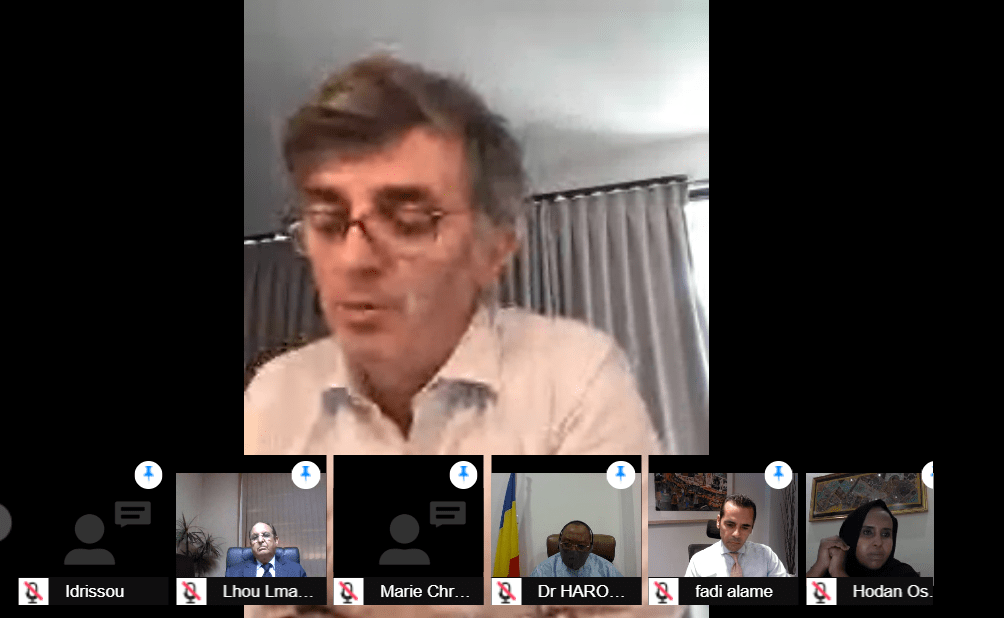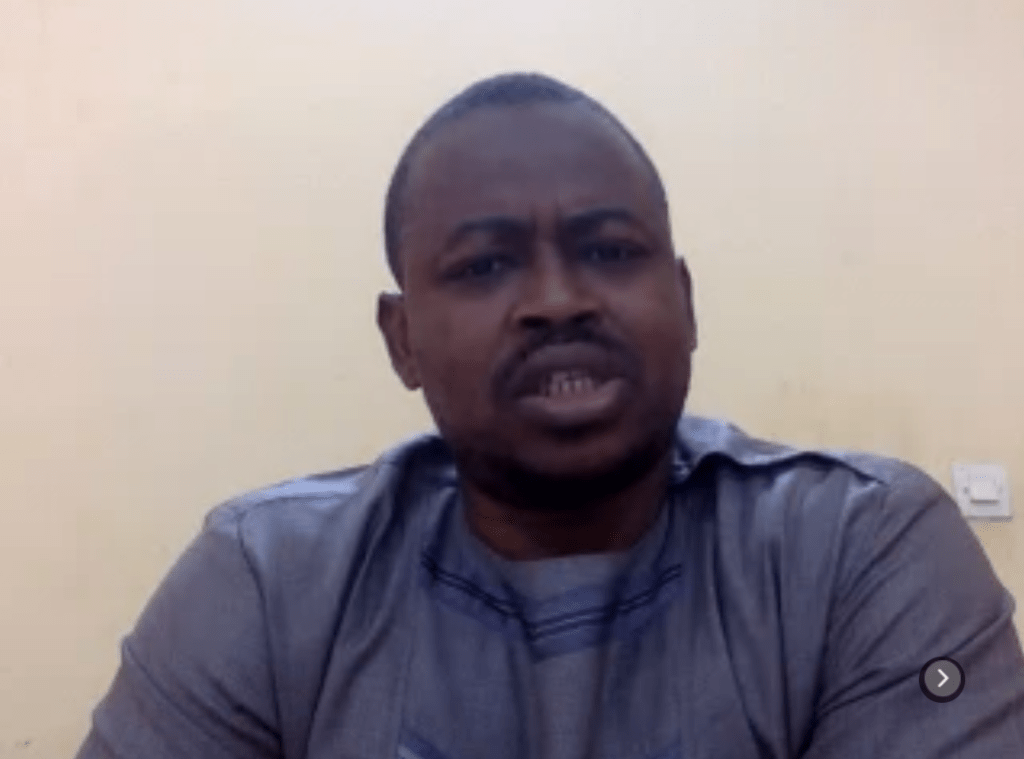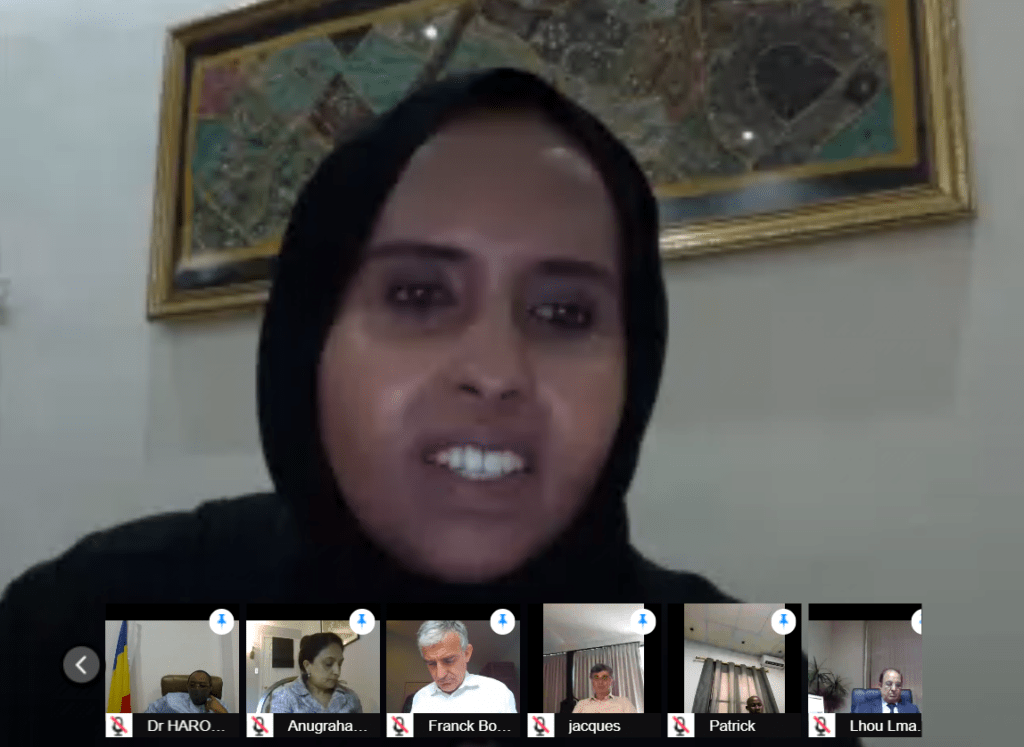On 6 May 2020, the Parliamentary Network on the World Bank & IMF (PN) jointly organized with the World Bank Group (WBG) a Virtual Parliamentary Meeting on Fragility, Conflict and Violence (FCV) in Time of COVID-19. The purpose of this meeting was to discuss experiences of MPs in FCV countries and the World Bank’s newest FCV strategy, with an emphasis on the Sahel region in the context of COVID-19. Around 107 participants from over 47 countries attended the conference.
Naye Bathily, Head of Global Parliamentary Engagement from the WBG and moderator of the meeting, welcomed the participants by emphasizing the increased importance of the FCV issues in this time of COVID-19.
Anugraha Palan, Lead, External Affairs, Fragility, Conflict and Violence of the WBG, welcomed the participants ion behalf of the World Bank by underscoring the urgency of dealing with FCV as one of the most pressing development issues at the global level. She explained that managing FCV situations is one of the top priorities of the WBG, as they are intricately linked to extreme poverty.
Franck Bousquet, Senior Director, Fragility, Conflict and Violence of the WBG, began his presentation by explaining that FCV situations have been deteriorating and becoming more complex over the past few years, and that poverty is being increasingly concentrated in FCV countries. Mr. Bousquet told the participants that a novel approach of the WBG’s new FCV strategy is focusing on the whole conflict spectrum – instead of treating solely post-conflict situations – since building peace and stability are a requirement for poverty alleviation and growth.
Mr. Bousquet stressed the importance of building partnerships. He explained that the WBG has been working on the ground with governments, humanitarian and international actors, and the private sector to boost job creation and focus on the most marginal groups with a targeted and differentiated approach. Mr. Bousquet presented the guiding principles of the FCV strategy which are focusing on prevention, building partnerships, having differentiated approaches and programmes, as well as mitigating the spillover effect of FCV crises. He finished his presentation by highlighting the great magnitude of the pandemic’s negative consequences in FCV countries and he explained that the WBG has taken fast action by focusing on the health and macroeconomic sectors in these countries.
Soukeyna Kane, Country Director for the Sahel Countries of the WBG, spoke about the implementation of the FCV strategy on the ground. She warned the participants about the risks of diminishing social expenditures while allocating resources to security. She said that the WBG is adjusting its programs to target the systemic and developmental causes of FCV such as poverty and education by focusing on prevention and resilience.
Ms. Kane explained that the WBG is increasing its dialogue with multiple partners in order to fight against marginalization and exclusion, and to cope with the pressures caused by the competition over resources, climate change and high growth population rates. She presented the WBG’s different forms of financial allocations to respond to FCV crises and highlighted the importance of investing in prevention and resilience. She said that the WBG strategy is focused on providing states with increased fiscal space to intervene in other areas of development instead of focusing solely on security. Ms. Kane finished by speaking about the FCV strategy in times of COVID-19 and explained that the World Bank is working to protect lives by strengthening national health systems, protecting livelihoods by working on food, security and social protection; and protecting the future of FCV countries by working on mitigating the socioeconomic impact of the pandemic.

Jacques Maire MP, France
During the discussion, Jacques Maire MP, Founder of the G5 Sahel Interparliamentary Alliance, spoke about the importance of legislators working together to cope with FCV situations. He called on international development organizations to remain accountable to parliamentarians and stressed the importance of the oversight function of parliaments. Mr. Maire presented the actions of the Interparliamentary Committee of the G5 Sahel as an original approach for legislators to monitor international partnerships in the development arena. He also recognized the inclusion of legislators in the WBG’s approach and exhorted all parties to allow parliamentarians to keep their oversight role over COVID-19 international aid packages.
Patrick Muyaya MP emphasized the importance of adapting the FCV strategy to national realities and focusing on the institutional aspects of the economic and health systems. According to him, COVID-19 reveals the systemic weaknesses in FCV countries and the best solution to cope with the pandemic is to focus on prevention. Mr. Muyaya applauded the human aspect of the WBG’s strategy and stated that focusing on poverty is essential to build resilience. He exhorted parliamentarians to help limit the spread of the pandemic and work to anticipate the possible consequences that future pandemics could have on the systemic fragility of FCV countries. Mr. Muyaya finished his intervention by making a call for global action to strengthen the economic and health systems in the Sahel region.
“Covid-19 takes the veil down on our social, economic and health care systems.”
Patrick Muyaya
Lhou Lmarbouh MP, President Emeritus and Rapporteur on Political and Security Matters of the Parliamentary Assembly of the Mediterranean (PAM), highlighted the importance of issues linked to natural resources and security voids in the Sahel region. He warned the participants about the presence of armed non-state actors and the use of violence against civilians. Mr. Lmarbouh made a call for international development aid and the revision of the debt for Sahel countries.
Dissan Gnoumou MP was pleased to know about the incorporation of parliamentarians on the FCV strategy and the financial measures taken by the WBG to help FCV countries in their fight against the spread of the pandemic and its negative consequences. He highlighted the importance of focusing at the local level by incorporating local actors in the decision-making processes since legislators, mayors and governors are close to the people.

Dissan Gnoumou MP, Burkina Faso
Fadi Alame MP spoke about the financial control measures passed by the Lebanese Parliament and stressed the importance of focusing on most vulnerable sectors of the population. He also exposed the risks of having a high population growth rate and its negative impact on the fight against the spread of COVID-19.
Senator Hodan Osman, Treasurer of the PN, stressed the importance of focusing on both social programmes and security expenditures. She explained that to resolve FCV situations, people need to have access to clean water, to quality schools and jobs. Ms. Osman finished by highlighting the oversight role of parliaments as essential parts of the checks and balances mechanisms.

Senator Osman, Somalia
Haroun Kabadi MP, Speaker Tchad National Assembly, stressed the need for increased international solidarity. He exhorted parliamentarians to keep playing their oversight role over development funds. Mr. Kabadi highlighted the importance of local actors, financing parliaments and taking a bottom-up approach on development issues to cope with FCV situations.
During the response by the WBG, Franck Bousquet emphasized the importance of strengthening the health systems as well as the human capital in the Sahel region. He agreed on the important role of local collectivities and exhorted parliamentarians to work closely with citizens and governments. Soukeyna Kane presented the access and quality of education as a core component of human capital. She finished by making a call to increase the partnership between donors and parliamentarians in the region to cope with the negative impact of COVID-19 in FCV countries.
Key Outcomes
- Mobilize legislators in FCV countries behind focused legislation and enhanced oversight to ensure efficient use of funding by the government, prioritizing target groups at risk and improving country outcomes, particularly in the context of an unprecedented global pandemic;
- International donors and partners should fund programmes aimed at strengthening parliamentary and civil society organizations’ capacity in FCV countries to promote knowledge sharing for better informed legislation;
- Build political capital for development partner operations committed to implementing solutions adapted to countries’ unique needs in FCV situations;
- Increase understanding and encourage the use of the World Bank’s data and work as a source of knowledge in FCV situations for achieving timely, meaningful, inclusive, and sustainable development results, and encourage legislators to share this knowledge with parliamentary colleagues;
- International conflict prevention and recovery efforts should be aimed at reinforcing parliaments’ long- term role in democratic governance and the country’s development efforts to prevent recurrence of conflict and violence situations;
- To foster social cohesion and sustainability, parliaments in FCV countries should work with all stakeholders, including the private sector and civil society organizations, through regular and inclusive dialogue, to ensure job creation, service delivery, and promote inclusive economic growth.
You can download a summary of this report in English here and in French here. To see more photos from this event please visit our Flickr page here.
